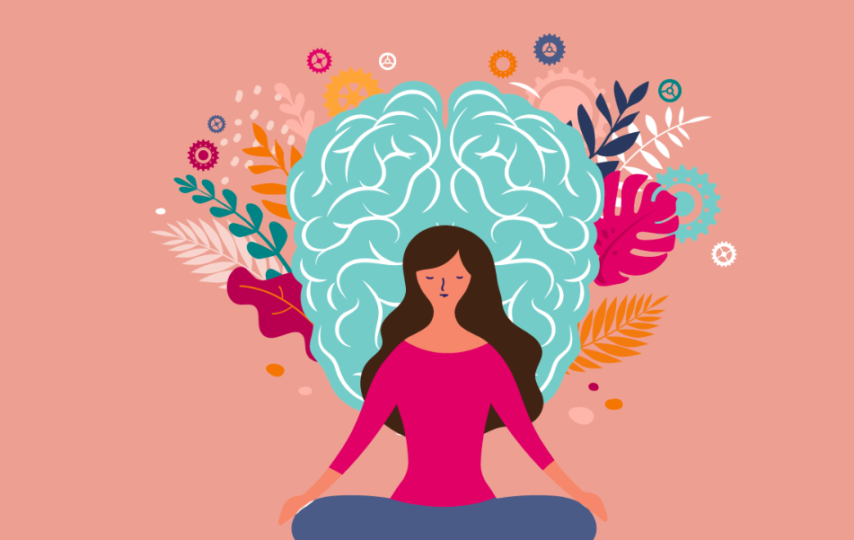Meditation and mindfulness offer valuable tools for managing stress, cultivating self-awareness, and promoting emotional resilience. Incorporating meditation and mindfulness into our daily lives can have profound effects on our mental health.
Having consistent practice helps activate the body’s relaxation response, which in turn promotes a state of calm. Meditation and mindfulness help alleviate anxiety and promote overall stress reduction by training one’s attention on the here and now rather than dwelling on the past or the future.
The practices of meditation and mindfulness help us become better at self-regulating and managing our feelings. When we cultivate an awareness of our thoughts and feelings that is not judgmental, we are better able to respond to experiences that involve our emotions with clarity and compassion. This not only helps us become more emotionally resilient, but it also makes us less reactive and fosters a healthier relationship with our feelings.
The practices of meditation and mindfulness bring our attention to the here and now and assist us in becoming more in tune with our thoughts, feelings, and sensations that our bodies are experiencing. Because of this increased self-awareness, we are able to recognize and comprehend our habits, impulses, and responses that are triggered automatically. With this knowledge, we are able to make conscious decisions and react in ways that are congruent with our core values and our sense of well-being.
Meditation and mindfulness are two practices that can be helpful in managing the thoughts and feelings associated with anxiety. Anxiety can be incapacitating. We are able to observe anxiety without getting caught up in its intensity if we practice being aware of the present moment and having a gentle curiosity about it. This can help promote a sense of calm while also helping to decrease the power that anxious thoughts have over a person.
The ability to maintain focus and concentration is strengthened through the practice of meditation and mindfulness on a regular basis. We can improve our cognitive abilities and increase the amount of work that we get done by training the mind to remain in the present and gently redirecting it when it wanders. This is especially helpful in this day and age of constant distractions and an abundance of information.
The practices of meditation and mindfulness cultivate feelings of compassion and kindness, both toward oneself and toward other people. Through the practice of self-compassion, we can train ourselves to respond to our own experiences with kindness, understanding, and acceptance. This extends to our relationships with other people, strengthening our capacity for empathy and fostering a social environment that is more compassionate and harmonious.
There are a lot of people who have problems falling asleep or staying asleep, and this can have a significant effect on their mental health. The mind and the body can be helped to relax through the practice of meditation and mindfulness, which creates the ideal conditions for a rejuvenating and restful night’s sleep. We are able to enhance the quality of our sleep and our overall well-being by practicing various methods of relaxation and developing more mindful bedtime rituals.
The key to successfully navigating life’s obstacles is to cultivate the ability to remain resilient in the face of adversity. Meditation and mindfulness are two practices that can help build emotional resilience by encouraging the development of adaptive coping strategies, elevating one’s level of self-awareness, and fostering a sense of one’s own inner fortitude. These habits make it easier for us to recover from setbacks and keep a positive attitude despite the inevitable ups and downs that are a part of life.













